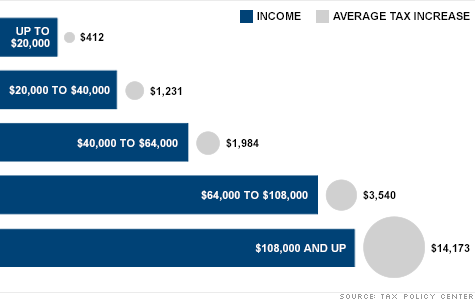Politicians and pundits alike are discussing the “fiscal cliff”. What has become a focus of the discussion by both political parties and the President are income taxes. Specifically, raising income taxes on the rich. None are addressing the root cause of the crisis the United States faces today, which is the income tax itself. The title of this column is from a book written by Frank Chodorov in 1954.
Chodorov wrote, “Income and inheritance taxes imply the denial of private property, and in that are different in principle from all other taxes.”
“The government says to the citizen: Your earnings are not exclusively your own; we have a claim on them, and our claim precedes yours; we will allow you to keep some of it, because we recognize your need, not your right; but whatever we grant you for yourself is for us to decide,” states Chodorov.
In the forward to Chodorov’s book J. Bracken Lee, the ninth Governor of Utah, wrote, “[A] weak government is the corollary of a strong people.”
Lee wrote, “The Sixteenth Amendment [which created the income tax] changed all that. In the first place, by enabling the federal government to put its hands into the pockets and pay envelopes of the people, it drew their allegiance away from their local governments. It made them citizens of the United States rather than of their respective states.”
“Theft loyalty followed theft money, which was now taken from them not by their local representatives, over whom they had some control, but by the representatives of the other forty-seven states. They became subject to the will of the central government, and their state of subjection was emphasized by every increase in the income-tax levies,” warned former Governor Lee in 1954.
Chodorov puts into historical perspective the how and why we have arrived at this point and today face yet another fiscal cliff. The United States faced this same crisis in 1873.
Chodorov stated, “But hungry people are impatient. They cannot wait for deflation to wipe out the debris of their own orgy. A much quicker cure is called for, and the medicine that promises a quick cure is money. During the [Civil] war, it was reasoned, the government printed greenbacks and there was prosperity; why not print more greenbacks and force prosperity to come back? And so, during the depression of 1873–76, and for twenty years after, there was a loud clamor for greenbacks, plus silver money to supplement the scarce gold. This was the principal recipe of the social doctors of the times, a loud-mouthed lot who acquired the generic name of Populists.” [Emphasis mine]
Chodorov noted that during the depression of 1873, “These [Populist] do- gooders were most vocal in the new West, where the ‘hard times’ hit hardest and held on for the longest time. The story of this area is the story of the railroads. In the light of later experience, we can describe the railroad expansion of the 1880’s as a make-work program, fostered by government subsidies and bounties.” Sounds eerily familiar to today’s calls to fund infrastructure improvements by the President and members of Congress.
Chodorov wrote, “[T]he income tax appealed to them [the Populists] as a means of wreaking their vengeance on those they hated—that is, those who had more than they had.”
Additionally, “Income taxation appeals to the governing class because in its everlasting urgency for power it needs money.” By 1891, the Populists, who had by that time coagulated into the People’s Party (1892-1908), included an income-tax plank in their platform. The Democratic Party later appropriated it. A typical remark in the debate on income taxation of 1894 is the following from a speech by the Populist Senator William. A. Peffer from Kansas:
“The only object we have in view in presenting this amendment [graduated income tax] is to rake in where there is something to rake in not to throw out the dragnet where there is nothing to catch. The West and the South have made you people rich.”
Chodorov notes, “The Populists, as do all reformers, assumed that social good can be achieved through political action. They ignored the age-old fact that whenever the government does “good” it acts in the interests of some at the expense of others, meanwhile acquiring power for itself. The end product of government intervention in the economy of the country is more power for government.”
“The American brand of socialism known as the New Deal was made possible by the income tax. But with the advent of income taxation, socialism was unavoidable,” wrote Chodorov.
Government never gives up power, it never voluntarily abdicates.
Chodorov offered a solution. According to Chodorov, “Compulsion means force; there must be a policeman to see that the individual does not follow his own inclinations. But policemen must live. Since they do not produce a thing by which they can live, others must support them.”
No plan can be bigger than its bureaucracy.
The only bulwark remaining against bigger federal government is the 10th Amendment – States rights and the will of the people.
Governor Lee stated, “For those of us who still believe that freedom is best, the way is clear: we must concentrate on the correction of the mistake of 1913. The Sixteenth Amendment must be repealed. Nothing less will do.”












 Zunaira Zaki from
Zunaira Zaki from